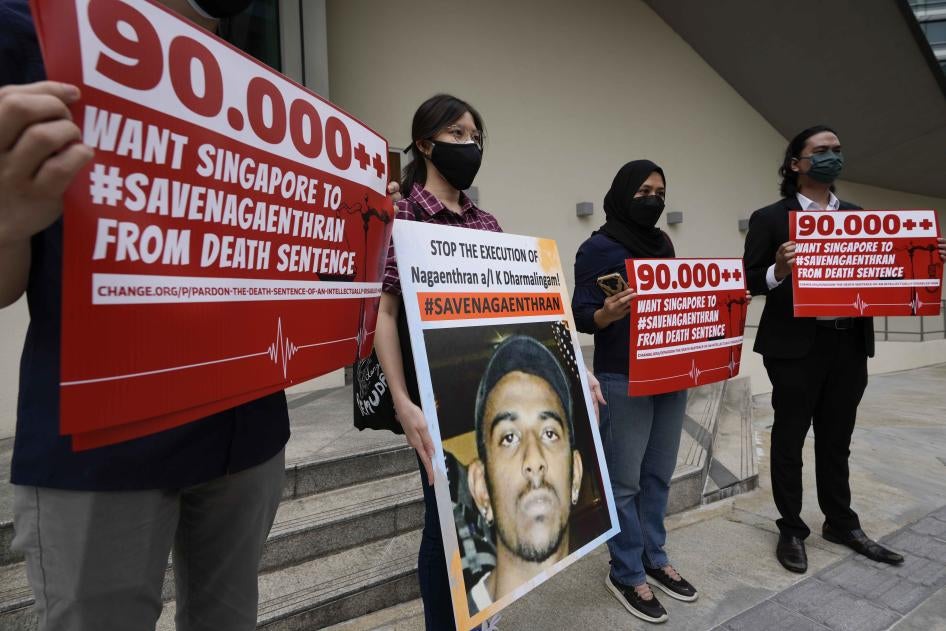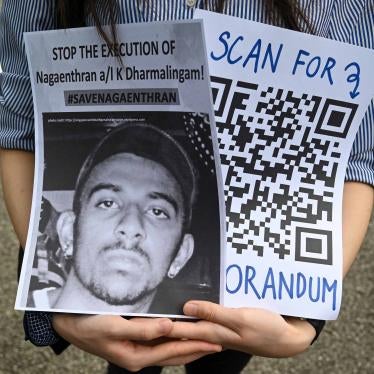When Singapore ratified the Convention on the Rights of Persons with Disabilities (CRPD) in 2013, it committed to protect the rights of the more than quarter-million people with disabilities in the city-state. However, the case of Nagaenthran Dharmalingam, sentenced to death for a nonviolent drug offense, has highlighted Singapore’s failure to make those rights a legal reality.
Lawyers for Nagaenthran, a 33-year-old Malaysian who has an IQ of 69 and attention hyperactivity disorder (ADHD), have sought to halt his execution, originally scheduled for November 10, 2021, arguing that executing a man with an intellectual disability would violate Singapore’s obligations under the CRPD, which requires equal access to justice, including disability-specific procedural accommodations. Nagaenthran was not provided required support and accommodation for his disabilities to facilitate his effective participation in his trial, nor procedural accommodations to ensure a fair trial and due process. The lawyers also requested an independent assessment of his mental health.
During a hearing on March 1, Singapore’s highest court made clear that Singapore law does not prohibit the execution of people with intellectual or psychosocial disabilities. Executing someone with an intellectual or psychosocial disability is inconsistent with international law and practice. “International law considers the imposition and enforcement of the death penalty on persons with mental disabilities a violation of the prohibition of torture and other cruel, inhuman and degrading treatment or punishment,” the UN Special Rapporteur on torture and other cruel, inhuman and degrading treatment or punishment wrote in 2014.
States parties to the CRPD are obligated to “adopt all legislative, administrative and other measures for the implementation of the rights” set forth in the convention and to “ensure that public authorities and institutions act in conformity” with it. But Singapore has not done so.
Instead, the country retains a mandatory death penalty for many offenses, including nonviolent drug offenses. While Singapore amended the Misuse of Dangerous Drugs Act in 2012 to allow for a life sentence rather than the death penalty if the court finds the defendant was merely acting as a courier and experienced “abnormality of mind” that “substantially impaired his mental responsibility for his acts and omissions in relation to the offense,” such relief is discretionary and is not available to those charged with other offenses carrying the mandatory death penalty.
Human rights conventions do little to benefit people in a country such as Singapore, where treaty obligations must be adopted into domestic law, if the government doesn’t take steps to do so. Singapore should amend its laws to ensure that no one is subjected to the death penalty, certainly not people with intellectual or psychosocial disabilities. The government should ensure all rights it has committed to protect are, in fact, upheld in domestic law.









